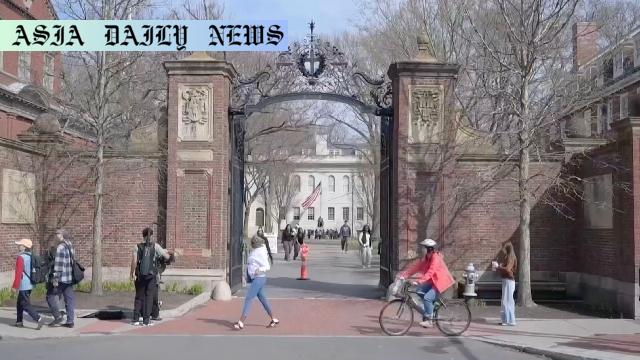Harvard University has filed a lawsuit against the Trump administration to stop implementation of a federal funding freeze.
Harvard has filed a lawsuit against the Trump administration challenging a federal funding freeze.
The funding freeze centered on the university’s response to alleged antisemitism and enforcement of student behavior rules.
Harvard accuses the government of overstepping its authority and jeopardizing academic freedoms.

Harvard Files Lawsuit Against Federal Funding Freeze
In a significant move underscoring the ongoing tension between elite educational institutions and the U.S. government, Harvard University has filed a federal lawsuit against the Trump administration. The legal challenge, initiated in a Massachusetts federal court, aims to overturn a partial freeze on federal funds allocated to the university. The funding, which constitutes billions of dollars, is essential for research, education, and various institutional programs. Harvard’s initiative reflects broader concerns within academia about the government’s increasing involvement in university autonomy.
Background on the Federal Funding Freeze
The controversy began when the Trump administration imposed strict conditions on federal funding for educational institutions, with one of the primary stipulations requiring Harvard to enforce stringent rules regarding student behavior. The administration justified its decision by referencing the university’s response to alleged antisemitic incidents on campus. While the government cited the importance of addressing such issues, Harvard’s leadership viewed these demands as an encroachment on academic independence. The freezing of funds has significant repercussions, potentially affecting students, faculty, and ongoing research efforts.
Harvard’s Arguments and Key Claims
In its lawsuit, Harvard made strong assertions against the federal government’s actions, labeling the funding freeze as “unlawful and beyond the government’s authority.” The university emphasized that withholding resources as leverage undermines the foundation of academic freedom and intellectual autonomy. Harvard President Lawrence Bacow expressed deep concern over the impact of the freeze, stating that it places undue strain on various stakeholders, including students and staff, while threatening the standing of American higher education globally. The lawsuit highlights the growing friction between political directives and educational institutions striving to uphold their principles.
Broader Implications for Higher Education
This legal battle has far-reaching implications, not just for Harvard but for the U.S. higher education sector as a whole. The New York Times has described the lawsuit as a pivotal moment in an escalating conflict between elite universities and the government. Many experts argue that greater government involvement in institutional policies could jeopardize academic independence and deter innovation. The case also ignites debates surrounding institutional responsibility to address broader societal issues while maintaining autonomy. Other universities are closely watching this dispute, as the outcome could influence federal funding policies across the nation.
Potential Outcomes and Looking Ahead
As the case unfolds, potential outcomes include a legal precedent influencing future federal policy on funding for educational institutions. Should Harvard succeed, it may send a powerful message concerning the limits of governmental authority over academia. Conversely, a decision favoring the Trump administration could embolden policymakers to assert greater control over universities and their internal operations. The lawsuit’s resolution will likely shape discussions surrounding the delicate balance between public funding and institutional independence for years to come. Regardless of the verdict, this case highlights critical challenges faced by institutions seeking to navigate an increasingly complex societal landscape.
Commentary
The Significance of Harvard’s Lawsuit
Harvard’s decision to challenge the Trump administration’s funding freeze has reignited debates about academic independence and governmental overreach. This lawsuit highlights a crucial issue: should universities receiving public funds be subject to strict governmental mandates, or should they retain the freedom to govern their institutions independently? Harvard’s stance underscores its belief in the paramount importance of preserving academic autonomy, even in the face of significant financial challenges.
Examining the Broader Consequences
The broader implications of this legal battle extend well beyond Harvard’s campus. Federal funding plays a pivotal role in supporting research and innovation at U.S. universities. By imposing stringent conditions tied to societal and political concerns, the government risks creating a climate of distrust within academia. Universities may feel compelled to compromise their values and priorities in exchange for funding, which could stifle innovation and intellectual diversity. Harvard’s bold move to stand against these measures serves as a cautionary tale for other institutions grappling with similar dilemmas.
Balancing Responsibility and Autonomy
There is no denying the responsibility educational institutions have to address social issues like antisemitism. However, the manner in which these challenges are addressed must not come at the expense of academic independence. While societal challenges require collective action, University policies should be determined internally, guided by institutional values rather than external political pressures. Harvard’s lawsuit poses the larger question of how universities can balance their commitment to societal accountability while maintaining autonomy over decision-making processes.
Conclusion: A Pivotal Moment in Higher Education
This legal battle marks a pivotal moment in higher education policy in the United States. The outcome of Harvard’s lawsuit could redefine the relationship between the government and educational institutions in the years to come. Regardless of the final verdict, this case serves as a reminder of the importance of safeguarding the independence of educational institutions in the face of political and financial pressures, ensuring that the pursuit of knowledge and innovation remains unencumbered.


